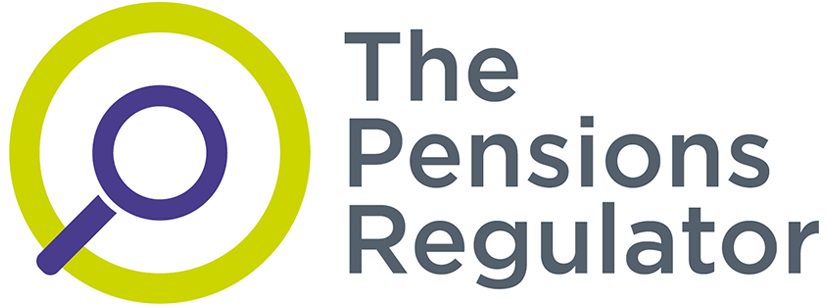The Pensions Regulator (TPR) has called for the introduction of a retirement 'sat-nav', after industry research revealed that the majority (70 per cent) of savers fully withdraw their defined contribution (DC) pension savings without professional advice or tailored guidance.
The research from the Pensions Policy Institute (PPI) suggested that millions of people saving into DC pensions need more help and guidance to make sure they access the right user-friendly retirement products for their personal circumstances, warning that many retiring savers take full cash withdrawals or stay in investment strategies designed for pre-retirement, not post-retirement, needs.
Indeed, the research revealed that, of the more than 450,000 pots accessed for the first time between October 2023 and March 2024, 51 per cent were fully withdrawn as cash.
TPR said it wanted the PPI’s findings to spark a conversation on how industry can support better saver outcomes and develop a consensus on the challenges to delivering value post-retirement, particularly given the growing importance of DC in pension savings.
“Automatic enrollment built a nation of savers. Now we must move from a savings system to a pensions system, and that requires a ‘sat-nav’ for retirement which simplifies options and empowers savers to make informed choices," TPR interim director of policy and public affairs, Patrick Coyne, said.
“Without the right support, savers may find themselves forced to work for longer or find themselves strapped for cash when they should be enjoying older life."
In particular, Coyne said that plans for a Guided Retirement duty in the Pension Schemes Bill present a "fantastic opportunity" for industry and policymakers to provide products and services suitable for different kinds of savers.
"We are keen to help and that is why next month we are also launching an innovation design service to get new ideas off the ground," he added.
"Our goal is to create a regulatory framework which helps stimulate new ideas and
support what’s already there.
"To provide certainty to businesses – schemes and administrators but also software
and technology providers – that when they put money into research and
development, they are not wasting their time.
"And to help market participants know and access a clear process which enables new
products and ideas to market in a way that is cost efficient for them, and always in
savers' interests."
Coyne admitted that there is unlikely to be a "one-size-fits-all approach to product design", although he clarified that "clearly, there are good processes to follow - such as defining the problem or opportunity clearly, prototyping, user testing, etc."
He also emphasised that there are steps the regulator would like to see the industry take ahead of the Pension Schemes Bill to make sure savers get good outcomes from pensions.
In particular, TPR said that it wants greater transparency over post-retirement investment strategies and for schemes to make better and more systematic use of the data they have to better understand their savers’ characteristics and circumstances.
The regulator suggested that this could help trustees to know how best to support their savers to navigate decisions at retirement, including through more tailored communications and targeted nudges.
"Globally we are in choppy water, with economic volatility across the world brought
about by US trade tariffs," he noted, suggesting that concerns around inflation, interest rate movements and global growth are contributing to a dynamic and unpredictable investment environment which is likely to continue for some time.
"Trustees need to understand their membership and how different cohorts are
affected by these market movements," he said.
"We’d want and expect you to monitor things like additional queries, withdrawal
requests and fund switches to cash. And to talk to people with clear information about the implications of current market conditions and what it might mean for them."
TPR also stressed the importance of data more broadly, arguing that trustees will increasingly need to better understand their savers’ needs and behaviours, as well as needing to prepare their data for the launch of pensions dashboards.
"Pensions can’t be viewed in isolation," he said. "Dashboards and the improvements in data quality may allow pensions to be better integrated into the fabric of the wider financial ecosystem over time."
More broadly, TPR also said that it would continue to support further pension scheme consolidation, particularly in the master trust sector, as this could reduce charges, improve scheme governance and services and offer opportunities to improve investment approaches, including consideration of a wider variety of post-retirement options such as in productive assets.
In line with this, it said that, where schemes lack the scale to improve, particularly in the use of data, member communications or investment transparency, they should consider if consolidation is in their members’ best interests.
Latest News
-
OBR analysis reveals potential impact of salary sacrifice changes
-
Strong funding levels continue as endgame landscape reshaped by innovation
-
Harwich Haven Authority Pension Fund finalises £45m buy-in with Royal London
-
GAD publishes LGPS gender pension gap reporting guidance
-
DB scheme funding levels continue to improve heading into 2026
-
News in brief - 6 February 2026
Private markets – a growing presence within UK DC
Laura Blows discusses the role of private market investment within DC schemes with Aviva Director of Investments, Maiyuresh Rajah
The DB pension landscape
Pensions Age speaks to BlackRock managing director and head of its DB relationship management team, Andrew Reid, about the DB pensions landscape
Podcast: From pension pot to flexible income for life

Podcast: Who matters most in pensions?

In the latest Pensions Age podcast, Francesca Fabrizi speaks to Capita Pension Solutions global practice leader & chief revenue officer, Stuart Heatley, about who matters most in pensions and how to best meet their needs
© 2019 Perspective Publishing Privacy & Cookies











Recent Stories